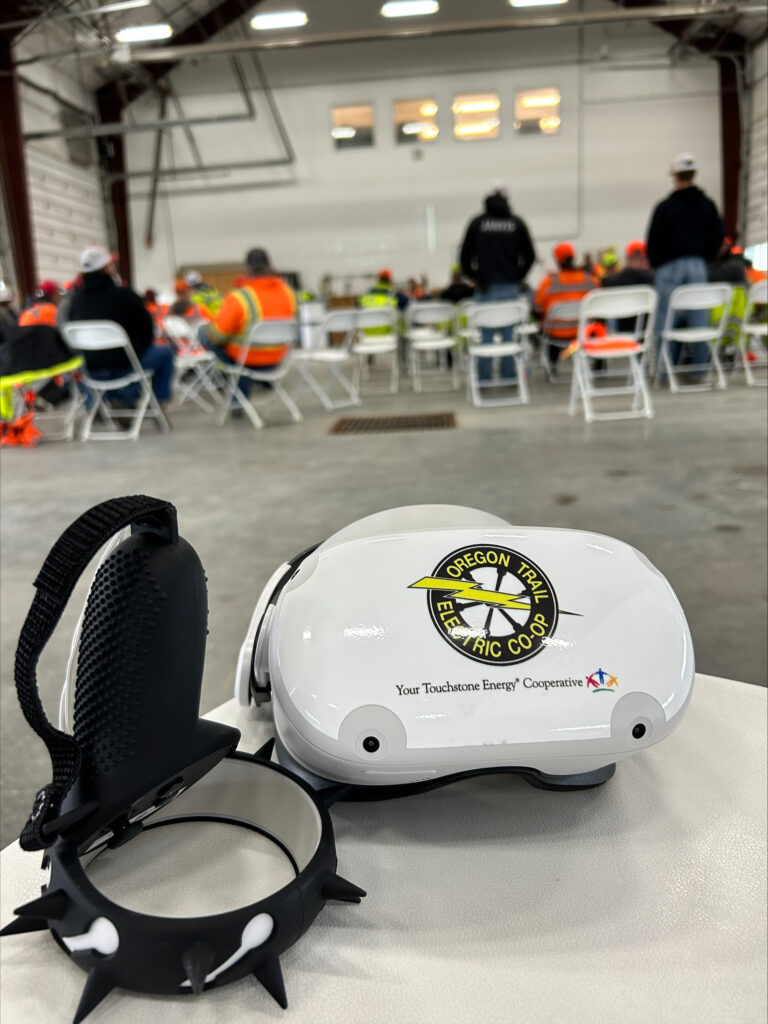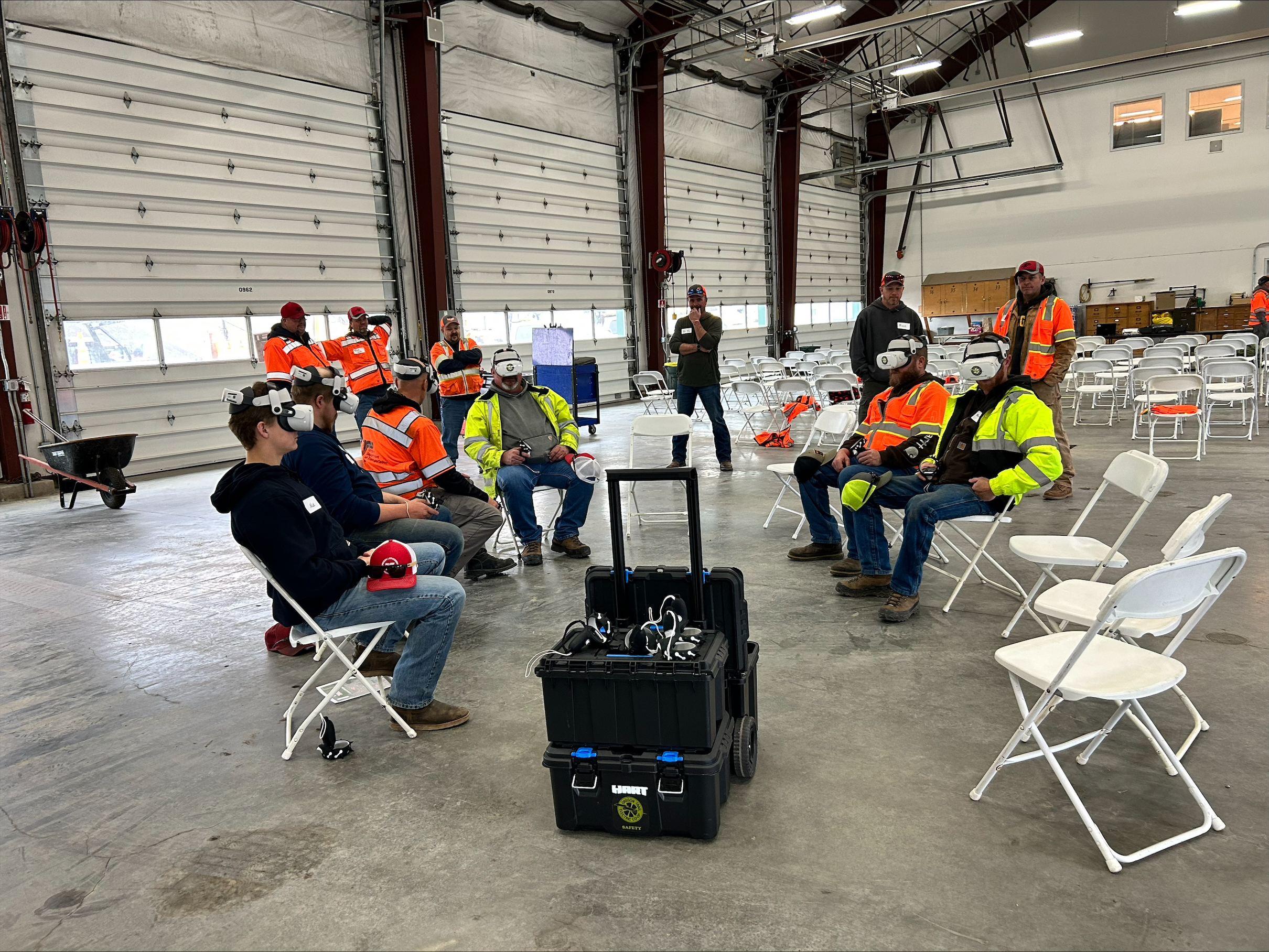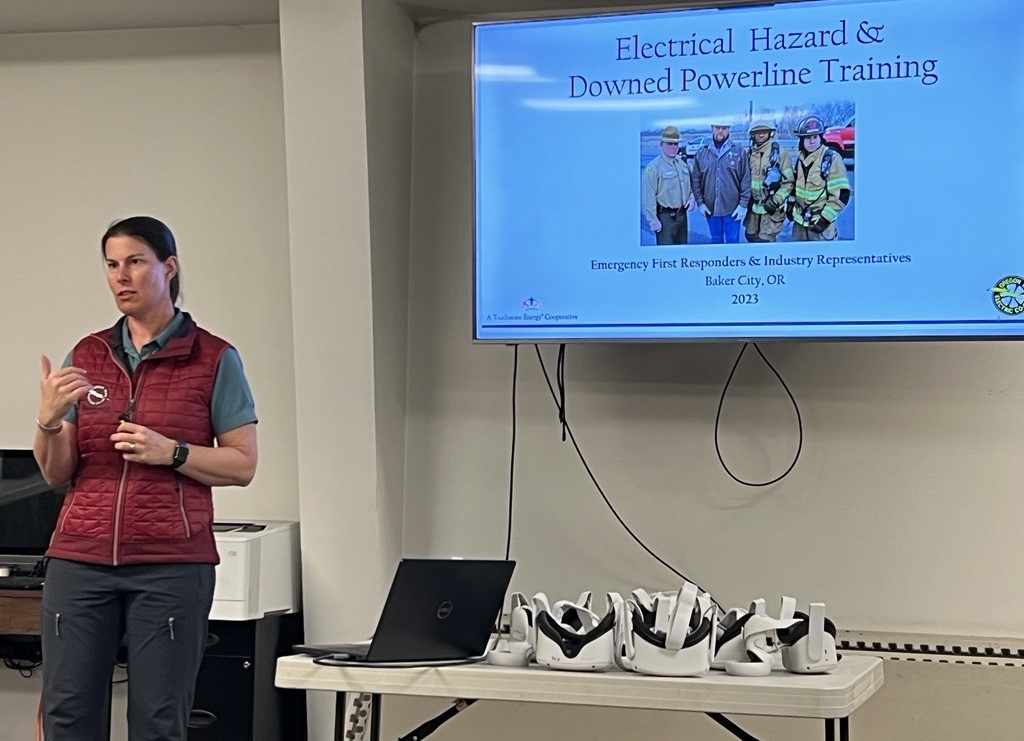
When immersive VR (virtual reality) headsets first hit the scene, they were primarily associated with leisure and entertainment—think simple games like walking the plank or riding roller coasters. However, Oregon Trail Electric Cooperative quickly saw beyond the novelty of VR and envisioned its potential for practical applications.
OTEC has been offering safety training in VR since September 2021, first focusing on downed powerline protocols for first responders and agricultural workers. The training sessions typically include a 20-minute PowerPoint presentation followed by a 7-minute VR video. According to Maaike Schotborgh, Manager of Safety & Loss Control at OTEC, “We’ve trained over 1,000 people and are getting close to 1,100, which is a really cool milestone for us!”

The effectiveness of VR training is remarkable. While traditional presentation methods have a retention rate of about 10% after four weeks, VR training boasts a retention rate of 70% even after a year. The feedback from OTEC’s VR trainings has been overwhelmingly positive. Participants frequently report a clearer understanding of safety procedures, noting that the VR experience effectively demonstrates the correct actions to take when encountering a downed powerline. To enhance access to these trainings, OTEC loans out their VR headsets to fire departments and other first responders, such as DOT personnel, who might encounter downed powerlines in remote areas. Maaike explained, “We have around 30 headsets and currently have about half of them loaned out.”
OTEC’s innovative use of VR technology extends beyond just safety training. They also create VR tourism videos in collaboration with their local chamber of commerce. These videos, which are available for anyone to download and use, are aimed at promoting economic development and aiding in recruitment efforts for the area. “In rural America, it can be hard to hire people,” Maaike noted. “The VR headsets allow potential recruits to virtually experience the beauty of the region. It’s a great tool for attracting the right talent. It’s remote, but there’s so much to do here if you like the outdoors.”
OTEC also takes the VR headsets to various local events, giving the community the chance to experience the technology firsthand. “When people try on a VR headset, it’s fun to see their different reactions,” she shared. “The younger kids usually get the video started before I’ve even finished explaining how to do it! For those a little older, it’s often a mind-blowing experience because they’ve never experienced anything like it before.”

Maaike sees immense potential in the technology. “There are so many ways of integrating VR into educating the public on safety,” she said. “First aid training, generator training, fire extinguisher trainings—the possibilities are endless. If the medium by which people are being trained is interesting to them, their attention is better, and VR adds that high retention rate. It’s a powerful combination.”
As OTEC continues to innovate across their organization, they are setting an example of how new technology can be harnessed to benefit utilities and the communities they serve. By prioritizing safety, education, and economic development, OTEC is not only improving the quality of life for their members but also paving the way for the future.